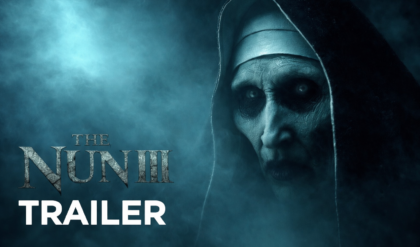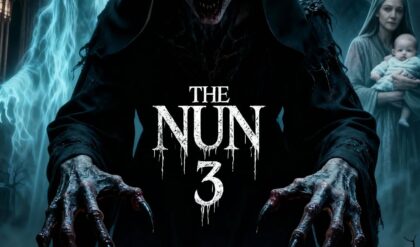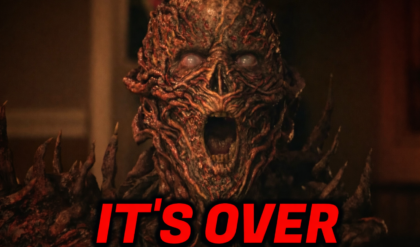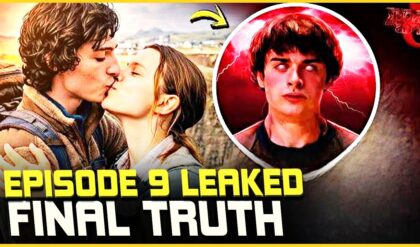March 20, 2025, was supposed to mark a triumphant milestone for Ubisoft with the release of Assassin’s Creed Shadows, a game fans had begged for—a sprawling adventure set in feudal Japan, complete with dual protagonists Naoe (a stealthy shinobi) and Yasuke (a historical Black samurai). Instead, the launch has been branded an unmitigated “disaster,” with gamers across the globe rejecting what they’re calling Ubisoft’s “DEI Japan dream.” Viral clips of buggy gameplay, awkward romance scenes, and a backlash against the game’s diversity push have turned Shadows into a punching bag on platforms like X and YouTube. What went so catastrophically wrong, and can Ubisoft recover from this gamer uprising? Let’s dissect the wreckage of one of the year’s most anticipated—and now most reviled—releases.
A Launch in Flames: Disaster Strikes
The buildup to Assassin’s Creed Shadows was electric. Trailers showcased a Japan of cherry blossoms, misty mountains, and brutal katana duels, promising a refined blend of stealth and combat. After two delays—from November 2024 to February 14, then March 20, 2025—Ubisoft swore the extra time was for “polish.” Yet, within hours of launch, reports of a “disaster” flooded the internet. Clips on X show NPCs clipping through walls, Yasuke’s horse galloping upside-down, and Naoe plummeting through the map mid-stealth kill. “Two delays and THIS is what we get?” one user raged, captioning a video of Yasuke’s cape spontaneously combusting in a cutscene.
The bugs aren’t just funny—they’re pervasive. Web forums like Steam Discussions teem with complaints of mission-breaking glitches, like NPCs freezing mid-quest or audio cutting out entirely. IGN’s early review (March 18, 2025) gave Shadows an 8/10, praising its ambition but noting “technical stumbles” that mar the experience. That nuance was lost online, where X posts like “Ubisoft’s launch is a dumpster fire” and “Shadows is DOA” dominate. Ubisoft’s history of shaky releases—think Unity’s faceless horrors—has primed fans to pounce, and Shadows’ unpolished state has handed them a flamethrower.
Rejecting the “DEI Japan Dream”
Beyond the bugs, the real rejection centers on what gamers are dubbing Ubisoft’s “DEI Japan dream”—a reference to diversity, equity, and inclusion initiatives they claim have hijacked the game. Yasuke, a Black samurai serving Oda Nobunaga in the 1580s, is the focal point. His inclusion was divisive from the reveal, with some praising the fresh perspective and others decrying it as a “woke” imposition on a Japanese setting. The launch has only deepened the divide, with X users accusing Ubisoft of prioritizing activism over authenticity.
The tipping point? Yasuke’s optional same-sex romance with Ibuki, a non-binary NPC. A viral clip of their exchange—“Your blade cuts deeper than steel, yet your touch heals my soul”—has been mocked relentlessly, with YouTube edits adding sitcom laugh tracks and captions like “DEI strikes again!” Critics argue it’s not just the cringe—it’s the sense that Ubisoft sidelined Japan’s own icons (think Musashi or Hanzo) for a figure whose samurai status is debated, all to tick diversity boxes. “This isn’t Japan’s story—it’s Ubisoft’s DEI fantasy,” one X post fumed, a sentiment echoed in a March 20 EndymionYT video titled “Assassins Creed Shadows Launch is a DISASTER! Gamers REJECT Ubisoft’s DEI Dream!”
Historical accuracy fuels the fire. Web searches reveal Yasuke’s tale is thin—Jesuit records confirm his presence, but his “samurai” label is speculative, per a 2024 History Today piece. Ubisoft’s creative director Jonathan Dumont told Screen Rant in 2024, “We’re weaving fiction with fact,” but for many, that weave unravels Japan’s heritage. Japanese players on 5ch and Nico Nico have called Shadows “Hollywood-ified,” pointing to English-accented NPCs and a shrine-smashing glitch as proof of disrespect. Whether it’s a vocal minority or a cultural consensus, the “DEI rejection” narrative has legs—and it’s running wild.
Gamers Revolt: A Community Divided
The gamer backlash is visceral. On X, hashtags like #BoycottShadows and #DEIJapan trend alongside memes of Yasuke flailing in buggy combat, captioned “Stealth: 0, Woke: 100.” YouTube channels like Vara Dark and FightinCowboy have piled on, with titles like “Assassin’s Creed Shadows: DEI Disaster Confirmed!” racking up views. The outrage taps into a broader “anti-woke” gaming wave—think Sweet Baby Inc. controversies or Hogwarts Legacy boycotts—turning Shadows into a lightning rod for pent-up frustration.
Yet, it’s not unanimous. Some defend Shadows, praising its visuals—lush seasons, dynamic weather—and its combat, with Yasuke’s brutality and Naoe’s gadgets shining despite the glitches. “Bugs aside, this is the Japan I wanted,” one X user posted, reflecting a minority willing to forgive. Eurogamer’s March 19 review lauded the dual-protagonist system as “a bold evolution,” scoring it 8/10. But these voices are drowned out by the mob, with X posts like “DEI ruined Assassin’s Creed” and “Ubisoft’s done” setting the tone. The rejection isn’t just about Shadows—it’s a referendum on Ubisoft’s direction.
Ubisoft’s Dream Crumbles: A Company in Peril
For Ubisoft, Shadows was a lifeline after a brutal 2024. Star Wars Outlaws flopped, Skull & Bones burned $800 million, and the company’s stock cratered to under €2 billion, per Reuters. Pre-orders for Shadows were “solid” (Q3 2025 earnings), but the launch disaster threatens a sales nosedive. Investors are restless—X rumors of a boycott echo a September 2024 Reuters report of activist shareholder AJ Investments pushing for a sale to Tencent or private equity. A That Park Place piece even speculated Tencent engineered the “DEI push” to tank Ubisoft’s value, though it’s unproven.
Ubisoft’s response has been tepid. A July 2024 apology to Japan for “promotional concerns” feels distant now, and CEO Yves Guillemot’s call to “enjoy” Shadows (October 2024) rings hollow as clips of glitches and “woke” moments dominate. The silence since launch—save for a rumored day-one patch—suggests a company reeling. “They’re in panic mode,” one X user claimed, pointing to Forbes’ 2024 report of Ubisoft bracing for developer harassment post-launch. With Tencent and Microsoft circling (Bloomberg, October 2024), Shadows’ failure could be the final straw.
Japan’s Verdict: Disrespect or Distortion?
The “DEI Japan dream” rejection isn’t just Western noise—Japanese players have weighed in. Posts on 5ch call Shadows “a foreign caricature,” citing Yasuke’s outsized role and cultural gaffes—like a tea ceremony interrupted by a glitchy NPC. A Nico Nico commenter wrote, “This isn’t our history—it’s Ubisoft’s agenda.” No official government backlash has surfaced (despite X claims of Diet debates), but a 2024 NHK piece noted historians questioning Yasuke’s prominence. The sense of a “dream” imposed rather than shared has turned local goodwill into skepticism, amplifying the global revolt.
A Flicker in the Rubble?
Not everyone’s torching Shadows. Some X users hail its world—“Cherry blossoms and katanas? I’m in”—and its soundtrack, a blend of traditional Japanese strings and modern flair. Combat shines when it works, with Yasuke’s finishers and Naoe’s stealth earning praise from TheGamer’s early hands-on. “It’s messy but magical,” one post admitted. Yet, with Metacritic at 82—solid but not stellar—and the viral rejection in full swing, these glimmers struggle to break through the smoke.
Conclusion: A Dream Reduced to Ashes
Assassin’s Creed Shadows was Ubisoft’s shot at redemption—a bold vision of Japan through a DEI lens, blending Yasuke’s uniqueness with Naoe’s tradition. Instead, it’s a “disaster” of epic proportions, rejected by gamers fed up with bugs and what they see as forced activism. The “DEI Japan dream” has crumbled under the weight of glitchy code, cultural missteps, and a fanbase that feels betrayed. Japan’s unease, real or amplified, only deepens the wound.
For Ubisoft, the stakes couldn’t be higher. Shadows’ launch has tanked its stock, fueled buyout rumors, and fractured its community. A patch might fix the bugs, but the “woke” stigma and gamer revolt could linger like ash after a fire. As one X post put it: “Ubisoft dreamed big and crashed hard.” Whether the company rises from the rubble or succumbs to the flames, Shadows’ legacy is already sealed—a cautionary tale of ambition torched by execution.





